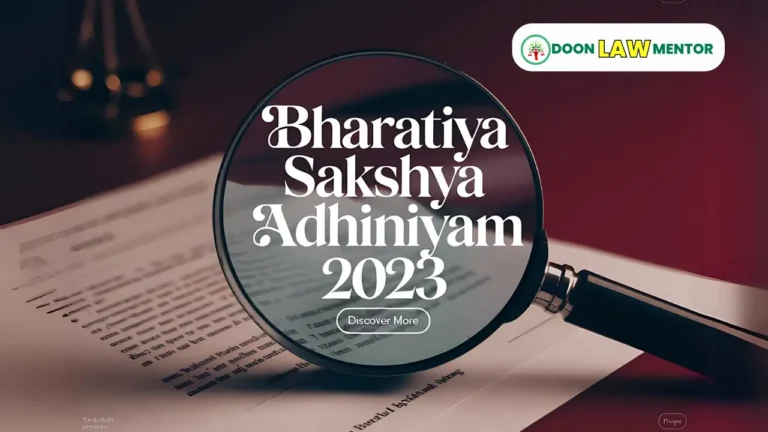Crack the Judiciary Exam 2025 with our Ultimate 6-Month Study Plan! Designed for law students and lawyers in India, this step-by-step guide covers syllabus, answer writing, current affairs, and more. Start preparing for PCS J, APO, and other law exams today—updated as of March 19, 2025!
Table of Contents
Introduction
The journey to becoming a judicial officer in India is a dream for many law students and lawyers, but it requires meticulous preparation, discipline, and a well-structured plan. With the Judiciary Exam 2025 approaching, aspirants need a strategic approach to cover the vast syllabus, master answer writing, and stay updated with current affairs. Whether you’re preparing for the PCS J, APO, or other law competitive exams, this Ultimate 6-Month Study Plan for Judiciary Exam Preparation 2025 is your roadmap to success. Designed as of March 19, 2025, this plan breaks down your preparation into manageable phases, ensuring you’re ready to ace the prelims, mains, and interview stages. Let’s dive in!
1. Understanding the Judiciary Exam 2025: What to Expect
Before diving into the study plan, let’s understand the structure of the Judiciary Exam 2025, which typically includes three stages:
- Preliminary Exam: Objective-type questions testing general knowledge, legal aptitude, and basic law subjects (e.g., Constitution, IPC, CPC).
- Mains Exam: Descriptive papers focusing on substantive law (e.g., Contract Act, Evidence Act), essay writing, and language skills.
- Interview/Viva Voce: Assessing personality, legal knowledge, and current affairs awareness.
Key Subjects to Cover
Based on insights from sources like Shiksha and TopRankers, the core subjects include:
- Constitutional Law
- Indian Penal Code (IPC) and Bharatiya Nyaya Sanhita (BNS)
- Code of Criminal Procedure (CrPC) and Bharatiya Nagarik Suraksha Sanhita (BNSS)
- Code of Civil Procedure (CPC)
- Indian Evidence Act and Bharatiya Sakshya Adhiniyam (BSA)
- Contract Act, Tort Law, and Property Law
- Family Law (Hindu and Muslim Law)
- Current Affairs and General Knowledge
- State-specific laws (e.g., UP PCS J includes UP-specific acts)
Exam Trends in 2025
- New Criminal Laws: The introduction of BNS, BNSS, and BSA (replacing IPC, CrPC, and Evidence Act) means aspirants must focus on these updated laws, as noted by Delhi Law Academy.
- Current Affairs Emphasis: Recent developments like the Ayushman Bharat MoU in Delhi (set for April 10, 2025) and Indore’s green waste plant (March 2025) are likely to appear in GK sections.
- Answer Writing: TopRankers highlights the importance of essay writing and judgment writing for mains, a trend continuing in 2025.
2. The Ultimate 6-Month Study Plan for Judiciary Exam Preparation 2025
This 6-month plan is divided into three phases: Foundation (Months 1-2), Core Preparation (Months 3-4), and Revision & Practice (Months 5-6). Each phase includes daily study hours, subject-wise focus, and practical tips.
Phase 1: Foundation (Months 1-2)
Goal: Build a strong base, understand the syllabus, and start with core subjects.
Daily Study Hours: 6-8 hours (adjust based on your schedule).
Month 1: Syllabus Mapping & Basics
- Week 1: Syllabus & Resources
- Day 1-2: Download the Judiciary Exam 2025 syllabus (e.g., UP PCS J, Delhi Judiciary) and analyze previous year papers (available on official state PSC websites).
- Day 3-4: Gather study materials—standard books like Constitutional Law by J.N. Pandey, IPC by Ratanlal & Dhirajlal, and bare acts (updated with BNS, BNSS, BSA).
- Day 5-7: Create a subject-wise timetable, allocating time for prelims (objective) and mains (descriptive) preparation.
- Week 2-4: Constitutional Law & General Knowledge
- Constitutional Law (3 hours/day): Focus on Articles 12-35 (Fundamental Rights), 226 (Writ Jurisdiction), and landmark cases like Maneka Gandhi v. Union of India (1978). Use Introduction to the Constitution of India by D.D. Basu.
- General Knowledge (2 hours/day): Read newspapers (e.g., The Hindu) for current affairs—note events like the UIDAI-Sarvam AI partnership (March 18, 2025) for Aadhaar voice authentication. Use Lucent’s General Knowledge for static GK.
- Bare Acts (1 hour/day): Start with the Constitution of India—memorize key articles and amendments.
- Mock Tests (1 hour/week): Take one prelims mock test weekly to assess your baseline (e.g., from TopRankers or Law Prep Tutorial).
Month 2: Criminal Law Basics & Language Skills
- Week 1-2: Criminal Law (IPC/BNS, CrPC/BNSS, Evidence/BSA)
- IPC/BNS (3 hours/day): Study major offenses (e.g., murder, theft, rape) and general exceptions. Refer to Criminal Law by P.S.A. Pillai and the bare act for BNS updates.
- CrPC/BNSS (2 hours/day): Focus on arrest, bail, and trial procedures. Use R.V. Kelkar’s Criminal Procedure and the BNSS bare act.
- Evidence/BSA (1 hour/day): Understand relevancy, admissibility, and confessions. Refer to Law of Evidence by Batuk Lal and the BSA bare act.
- Week 3-4: Language Skills & Current Affairs
- Language Papers (2 hours/day): For mains, practice essay writing (e.g., on “Impact of New Criminal Laws in India”) and translation (if applicable). Use Wren & Martin for grammar.
- Current Affairs (2 hours/day): Cover legal updates (e.g., Suposhit Mumbai Abhiyan 2025 for child nutrition) and national events (e.g., Varuna-2025 naval exercise). Use Pratiyogita Darpan for monthly summaries.
- Revision (1 hour/day): Revise Constitutional Law notes and bare acts from Month 1.
Phase 2: Core Preparation (Months 3-4)
Goal: Deep dive into remaining subjects, start answer writing, and build speed for prelims.
Daily Study Hours: 8-10 hours.
Month 3: Civil Law & Family Law
- Week 1-2: Civil Law (CPC, Contract, Tort, Property)
- CPC (3 hours/day): Study jurisdiction, pleadings, and execution of decrees. Use C.K. Takwani’s Civil Procedure Code.
- Contract Act (2 hours/day): Focus on offer, acceptance, and breach of contract. Refer to Avtar Singh’s Law of Contract.
- Tort Law (1 hour/day): Understand negligence, nuisance, and defamation. Use R.K. Bangia’s Law of Torts.
- Property Law (1 hour/day): Study the Transfer of Property Act—sale, lease, and mortgage. Refer to Poonam Pradhan Saxena’s Property Law.
- Week 3-4: Family Law & Answer Writing
- Family Law (3 hours/day): Cover Hindu Law (marriage, succession) and Muslim Law (divorce, maintenance). Use Paras Diwan’s Family Law.
- Answer Writing (2 hours/day): Practice mains answers—e.g., “Discuss the scope of Article 21 in light of recent judgments.” Follow TopRankers’ tip: structure answers with an introduction, legal provisions, case laws, and conclusion.
- Mock Tests (2 hours/week): Take one prelims and one mains mock test weekly. Analyze mistakes and improve speed.
Month 4: State-Specific Laws & Interview Prep
- Week 1-2: State-Specific Laws & Minor Acts
- State Laws (3 hours/day): For UP PCS J, study the UP Zamindari Abolition and Land Reforms Act. For Delhi Judiciary, focus on the Delhi Rent Control Act. Use state-specific bare acts.
- Minor Acts (2 hours/day): Cover acts like the Limitation Act, Specific Relief Act, and Negotiable Instruments Act. Refer to bare acts and Mulla’s Principles for clarity.
- Current Affairs (1 hour/day): Note events like India’s 33 medals at the Special Olympics World Winter Games (March 2025) for GK.
- Week 3-4: Interview Preparation & Revision
- Interview Prep (2 hours/day): Prepare answers for common questions (e.g., “Why do you want to be a judge?”) and legal updates (e.g., impact of BNS on criminal justice). Practice mock interviews with peers or mentors.
- Revision (3 hours/day): Revise Criminal Law, Civil Law, and Family Law notes. Focus on bare acts and landmark cases (e.g., Puttaswamy v. Union of India for privacy).
- Mock Tests (2 hours/week): Continue with mock tests, focusing on time management for prelims.
Phase 3: Revision & Practice (Months 5-6)
Goal: Revise thoroughly, perfect answer writing, and simulate exam conditions.
Daily Study Hours: 10-12 hours.
Month 5: Intensive Revision & Answer Writing
- Week 1-2: Subject-Wise Revision
- Constitutional Law (2 hours/day): Revise Articles, amendments, and cases.
- Criminal Law (2 hours/day): Focus on BNS, BNSS, and BSA updates.
- Civil Law (2 hours/day): Revise CPC, Contract, and Property Law.
- Family Law (1 hour/day): Revisit Hindu and Muslim Law provisions.
- Current Affairs (1 hour/day): Update notes with recent events (e.g., Dr. Achyut Wagle’s appointment as KU VC, March 2025).
- Week 3-4: Answer Writing & Judgment Writing
- Answer Writing (3 hours/day): Practice 2-3 mains answers daily—e.g., “Analyze the impact of Article 14 on reservation policies.” Use case laws like Indra Sawhney v. Union of India (1992).
- Judgment Writing (2 hours/day): Practice writing judgments for hypothetical cases (e.g., a dowry death case under Section 304B). Follow the format: facts, issues, arguments, and decision.
- Mock Tests (3 hours/week): Take full-length prelims and mains tests. Aim for 80% accuracy in prelims.
Month 6: Final Prep & Exam Simulation
- Week 1-2: Full Syllabus Revision
- All Subjects (4 hours/day): Revise notes, bare acts, and case laws. Focus on weak areas identified from mock tests.
- Current Affairs (2 hours/day): Cover the last 6 months—e.g., Ayushman Khurrana as Fit India Icon (March 2025).
- Interview Prep (2 hours/day): Revise legal updates and practice speaking confidently.
- Week 3-4: Exam Simulation & Confidence Building
- Full-Length Tests (4 hours/day): Simulate exam conditions—take 2 prelims and 2 mains tests weekly. Time yourself strictly.
- Revision (3 hours/day): Focus on bare acts, key articles, and recent judgments.
- Relaxation (1 hour/day): Practice mindfulness or light exercise to manage stress.
- Final Interview Prep (2 hours/day): Conduct mock interviews, focusing on current affairs (e.g., Khelo India Para Games 2025) and personal questions.
3. Daily Schedule Example (Month 3, Week 1)
| Time | Activity | Details |
|---|---|---|
| 7:00 AM – 8:00 AM | Morning Routine & News | Read The Hindu—note legal updates (e.g., Suposhit Mumbai Abhiyan 2025). |
| 8:00 AM – 11:00 AM | CPC Study | Study jurisdiction (Sections 9-20), refer to C.K. Takwani’s CPC. |
| 11:30 AM – 1:30 PM | Contract Act | Focus on breach of contract (Sections 73-75), use Avtar Singh’s book. |
| 2:30 PM – 3:30 PM | Tort Law | Study negligence, refer to R.K. Bangia’s Law of Torts. |
| 3:30 PM – 4:30 PM | Property Law | Study sale of property (Section 54), use Poonam Pradhan Saxena’s book. |
| 5:00 PM – 7:00 PM | Answer Writing Practice | Write an answer on “Scope of Section 9 CPC in civil suits.” |
| 7:30 PM – 8:30 PM | Current Affairs Revision | Revise notes on recent events (e.g., Varuna-2025 naval exercise). |
| 9:00 PM – 10:00 PM | Bare Act Revision | Memorize key sections of CPC (e.g., Section 11—Res Judicata). |
4. Recommended Resources for Judiciary Exam 2025
Books
- Constitutional Law: Introduction to the Constitution of India by D.D. Basu
- Criminal Law: Criminal Law by P.S.A. Pillai, BNS/BNSS/BSA bare acts
- Civil Law: C.K. Takwani’s Civil Procedure Code, Avtar Singh’s Law of Contract
- Family Law: Paras Diwan’s Family Law
- Current Affairs: The Hindu, Pratiyogita Darpan
Online Resources
- Mock Tests: TopRankers, Law Prep Tutorial
- Current Affairs: Use X for real-time updates—follow handles like @BarandBench for legal news.
- Bare Acts: Access updated bare acts on India Code.
Coaching Support
- Enroll in Doon Law Mentor’s Judiciary Exam Course for expert guidance, mock tests, and answer writing practice.
5. Tips to Stay Motivated During Judiciary Exam Preparation 2025
- Set Small Goals: Break your study plan into weekly targets (e.g., finish CPC in 2 weeks).
- Track Progress: Use a planner to mark completed topics—seeing progress boosts confidence.
- Join Study Groups: Discuss concepts with peers on platforms like Telegram or WhatsApp.
- Take Breaks: Follow the Pomodoro technique—25 minutes of study, 5-minute break.
- Stay Positive: Remind yourself of your goal—becoming a judicial officer in 2025!
6. Common Mistakes to Avoid
- Ignoring Bare Acts: Bare acts are the backbone of judiciary exams—memorize key sections.
- Neglecting Answer Writing: Start practicing early, as mains require structured answers.
- Overloading Current Affairs: Focus on the last 12 months, not beyond.
- Skipping Mock Tests: Regular testing helps identify weak areas and improves speed.
- Burning Out: Balance study with relaxation to avoid fatigue.
Table: 6-Month Study Plan Overview
| Phase | Months | Focus Areas | Key Activities |
|---|---|---|---|
| Foundation | 1-2 | Constitutional Law, Criminal Law, GK | Syllabus mapping, basics, current affairs |
| Core Preparation | 3-4 | Civil Law, Family Law, Answer Writing | Deep study, state laws, interview prep |
| Revision & Practice | 5-6 | Full syllabus revision, mock tests | Intensive revision, exam simulation |
Conclusion
The Ultimate 6-Month Study Plan for Judiciary Exam Preparation 2025 is your blueprint to success in PCS J, APO, and other law competitive exams. By following this structured approach, you’ll cover the syllabus, master answer writing, and stay updated with current affairs—all while building the confidence to ace the exam. Start today, stay consistent, and let 2025 be the year you achieve your dream of becoming a judicial officer. For more expert guidance, join Doon Law Mentor and take your preparation to the next level!
Ready to crack the Judiciary Exam 2025? Join Doon Law Mentor’s Courses for expert guidance, mock tests, and more! Follow @doonlawmentor on Instagram for daily tips and updates!
FAQs
- What is the Ultimate 6-Month Study Plan for Judiciary Exam 2025?
It’s a structured plan dividing preparation into three phases—foundation, core preparation, and revision—to cover the syllabus and practice effectively. - How many hours should I study daily for Judiciary Exam 2025?
Aim for 6-8 hours in Months 1-2, 8-10 hours in Months 3-4, and 10-12 hours in Months 5-6, depending on your schedule. - Which subjects should I focus on for Judiciary Exam 2025?
Focus on Constitutional Law, Criminal Law (BNS, BNSS, BSA), Civil Law (CPC, Contract), Family Law, and current affairs. - How do I prepare for the new criminal laws (BNS, BNSS, BSA) in 2025?
Study the bare acts, compare them with IPC, CrPC, and Evidence Act, and refer to updated books like Criminal Law by P.S.A. Pillai. - What are the best books for Judiciary Exam 2025 preparation?
Use D.D. Basu for Constitutional Law, C.K. Takwani for CPC, Paras Diwan for Family Law, and bare acts for all subjects. - How important is answer writing for Judiciary Exam 2025?
Extremely important—mains require structured answers, essays, and judgment writing. Start practicing from Month 3. - How do I stay updated with current affairs for Judiciary Exam 2025?
Read The Hindu daily, use Pratiyogita Darpan, and follow legal updates on X (e.g., @BarandBench). - What role do mock tests play in Judiciary Exam 2025 preparation?
Mock tests help assess your progress, improve speed, and identify weak areas. Take them weekly from Month 1. - How do I prepare for the Judiciary Exam 2025 interview?
Start in Month 4—revise legal updates, practice common questions, and conduct mock interviews with peers or mentors. - Can I crack Judiciary Exam 2025 with 6 months of preparation?
Yes, with a disciplined plan like this, consistent effort, and regular practice, you can succeed in 2025.
#JudiciaryExam2025, #PCSJPreparation, #LawStudentsIndia, #StudyPlan2025, #LawAspirantsIndia #doonlawmentor








